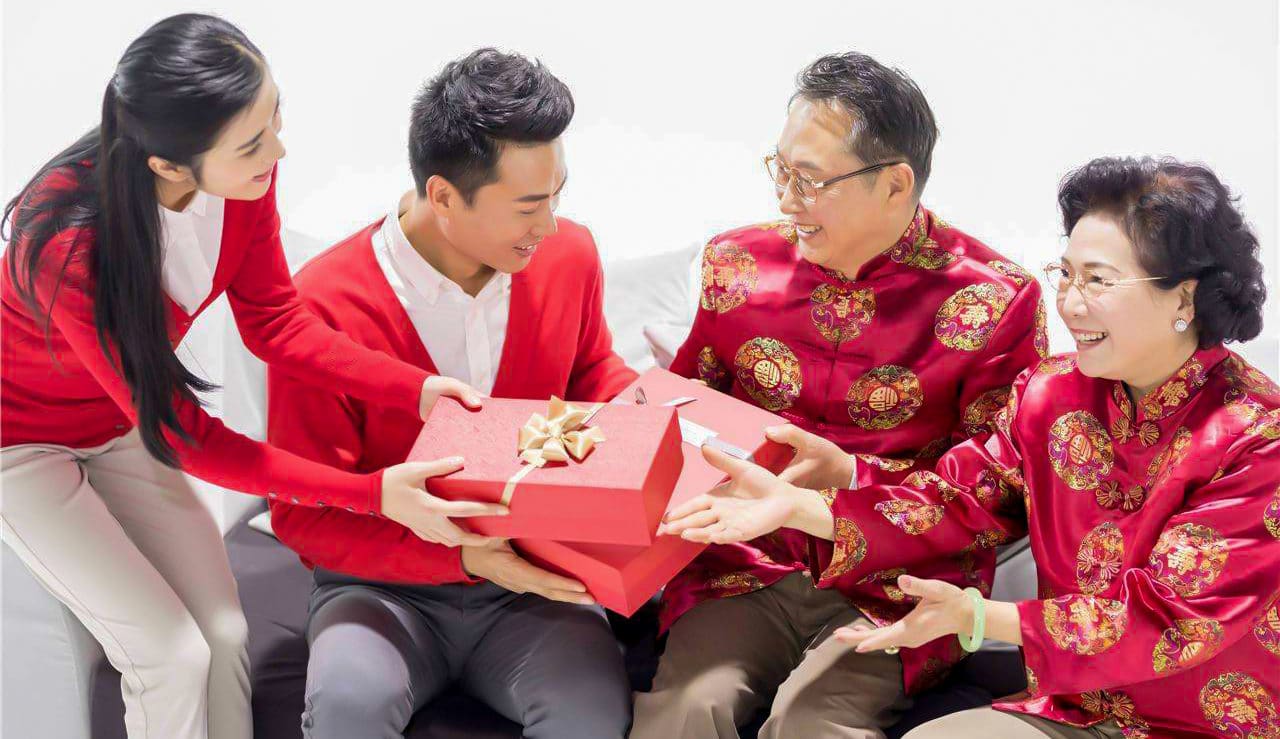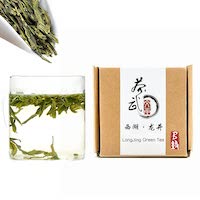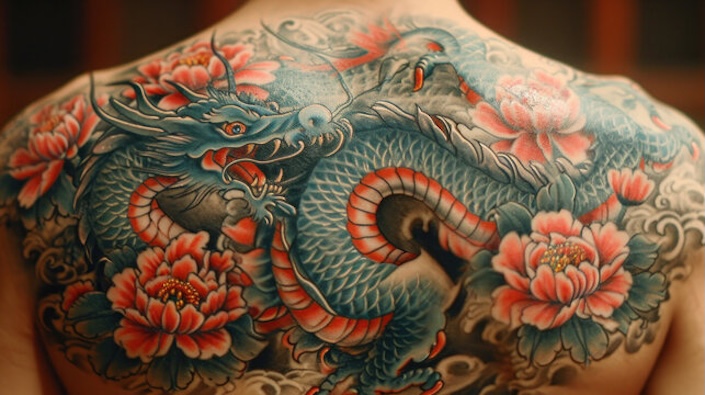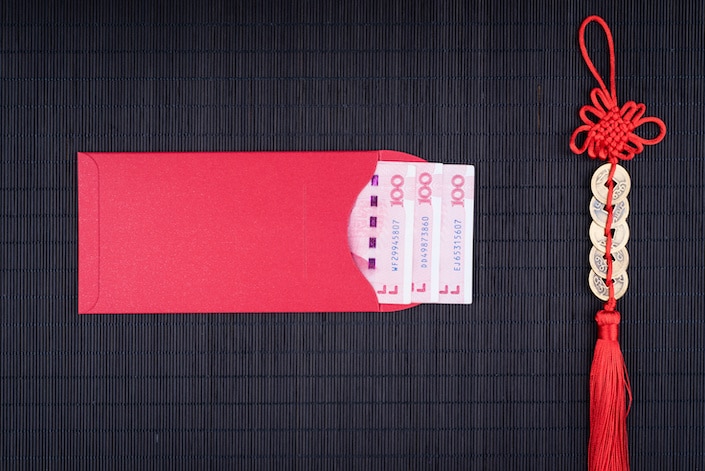Gift Ideas for Your Chinese Friends, Colleagues and Family
 Tania Yeromiyan
Tania YeromiyanLearn Chinese in China or on Zoom and gain fluency in Chinese!
Join CLI and learn Chinese with your personal team of Mandarin teachers online or in person at the CLI Center in Guilin, China.
Ever wondered what to gift your Chinese friends on special occasions? Whether it's for Chinese New Year, birthdays, or just a gift of appreciation, it's important to understand Chinese gift etiquette.
Read on to discover some Chinese gift giving do's and don'ts and get some suggestions for great Chinese gift ideas.

Giving and receiving gifts is an important aspect of Chinese culture.
Gift Ideas for Your Chinese Friends, Colleagues, or Family
1. Tea
Long considered a health drink which was originally only to be enjoyed by emperors and officials, there is a long history and cultural value behind tea in China. Just remember to avoid tea bags and instead gift high-quality tea leaves packed in a nice tin.
2. Chinese tea set
Historians hold that the first tea sets emerged during the Han Dynasty (206–220 BCE) in China. At this time, tea ware was made of porcelain and consisted of two styles: a northern white porcelain and a southern light blue porcelain.
What better Chinese gift than this timeless item? It's both aesthetically pleasing and functional. Browse below for some of our favorite Chinese tea sets available on the market.

Want the perfect ornament to go with the tea set? Consider adding a tea pet!
3. Clothes
This is a good gift choice for closer friends and even your significant other. For example, a nice winter set consisting of gloves, a scarf, and a hat shows how much you care for the wellbeing and comfort of the receiver.
Clothes are a perfectly practical yet sentimental gift!
4. Fruit
Fresh fruit, especially when gifted at the Chinese New Year, symbolizes life and new beginnings — you will even see fruit used as temple offerings. Fruit is a very popular gift choice and presenting your hosts a basket full of apples, oranges, kiwis and other seasonal fresh fruits is guaranteed to be a hit!


Fruit is a great gift choice for almost any occasion.
5. Alcohol
Alcohol is a simple gift that can come in a variety of options! A nice bottle of wine, whiskey or even champagne can go a long way in China.
Foreign spirits may be a better gift idea since they are harder to come by in China, though you can’t go wrong with a nice bottle of 茅台酒 (máotáijiǔ), a famous brand of Chinese 白酒 (báijiǔ, distilled Chinese liquor).


Maotai is one of the most popular brands of alcohol in China.
6. Red envelopes with money
Gifting money in red envelopes (红包 hóngbāo) is a very common practice in China, especially during the Chinese New Year, at weddings, and on birthdays. You generally want to gift shiny, crisp new bills in multiples of 100 and based on a lucky number (such as 200, 800 or 900).
Chinese currency is usually used to stuff red envelopes in China, but it's also perfectly fine to use the currency of whatever country you and the receiver happen to be in.
Never place any coins or amounts such as 40 or 400 in the envelope. Remember that according to Chinese numerology, the number 4 (四 sì) in Chinese sounds like the word for “death” (死 sǐ)!
Interested in giving a friend, family member or colleague a Chinese red envelope? Here are CLI's recommended items. The first option is the type of red envelopes that you'd typically see in mainland China. The second option is a more luxurious choice. Both are appropriate for any occasion.
7. Custom Chinese name seal
A Chinese seal with one's name custom engraved is a timeless piece. This is an excellent gift for a friend, family member, colleague, or even for yourself. Here's are recommended seal:
8. Books about China
Books are a timeless and memorable gift, and they always have a place in the recipient's home. We've compiled some of our favorite book choices below.
9. Plants and cacti
Plants are a surprisingly popular gift in Chinese culture. If you want to gift plants, succulents and cacti are a good gift choice since they are easy to take care of, extremely cute and popular.
10. Gift cards
Many businesses in China offer gift cards — a lot of restaurants, cafes, and massage parlors even offer bonuses and additional free gifts if you purchase a larger gift bundle.


Gift cards work well if you aren't quite sure which gifts to choose.
Chinese Gift-Giving Etiquette
What is intended to be a nice gift can backfire if you’re not acquainted with traditional Chinese gifting customs. Here are some key considerations when purchasing a gift:
1. Avoid overly cheap or expensive gifts
Chinese culture places a heavy emphasis on 面子 (miànzi, face-giving/saving). Therefore, it is important to consider choosing your gift carefully and to pick a gift suitable to the recipient’s economic status.
Overly expensive gifts can be deemed inappropriate as it puts the receiver in an uncomfortable situation since they may not be able to return the favor with another expensive gift.
On the contrary, you do not want to gift something of low value as you will come across as cheap or stingy. Sometimes, it is not just “the thought that counts,” in which case you’ll want to be aware of the gift’s monetary value.


Red envelopes containing money are popular Chinese gifts, especially for weddings and Chinese New Year.
2. Consider the color of your gift and its wrapping paper
Color symbolism is an innate part of Chinese culture. Avoid black (evil) and white (funerals) and instead go for red (good fortune), yellow (traditional color reserved for the emperor) and blue (healing and immortality).
If ever in doubt, always go for red!


Red is a great color for gift wrap and packaging.
3. Don’t open gifts in front of your gift-giver
Although no longer a matter of great importance amongst younger generations, generally Chinese people do not open gifts in the presence of the gift-giver, so don’t be surprised if the recipient does not open their gift in front of you.
If you receive a gift, it is best to refrain from opening it in front of everyone until later.


When receiving gifts in China, it's best not to open them in front of the giver.
4. Avoid certain gifts!
Never gift clocks, umbrellas, scissors and knives, or shoes. Consider the following:
- “送钟” (sòng zhōng, to gift a clock) sounds like “送终” (sòngzhōng, to attend a funeral ritual)
- “鞋” (xié, shoes) sounds like “邪” (xié, evil)
- “伞” (sǎn, umbrella) sound like “散” (sàn, to break up)
And remember, always accept and give gifts using both hands! This shows you respect the other person and are grateful for the interaction.


Pay attention to Chinese gift-giving taboos when choosing your gifts.
We hope you enjoyed the above Chinese gift ideas! We hope to see you soon to learn Chinese online!


Tania holds a BA in Arabic and Chinese from the University of Leeds, which led her to spend two years studying in Taiwan and Egypt as part of her degree. Her interests include Chinese traditional theater, international education, and programming. Tania travels to China annually and is fluent in Chinese.






























